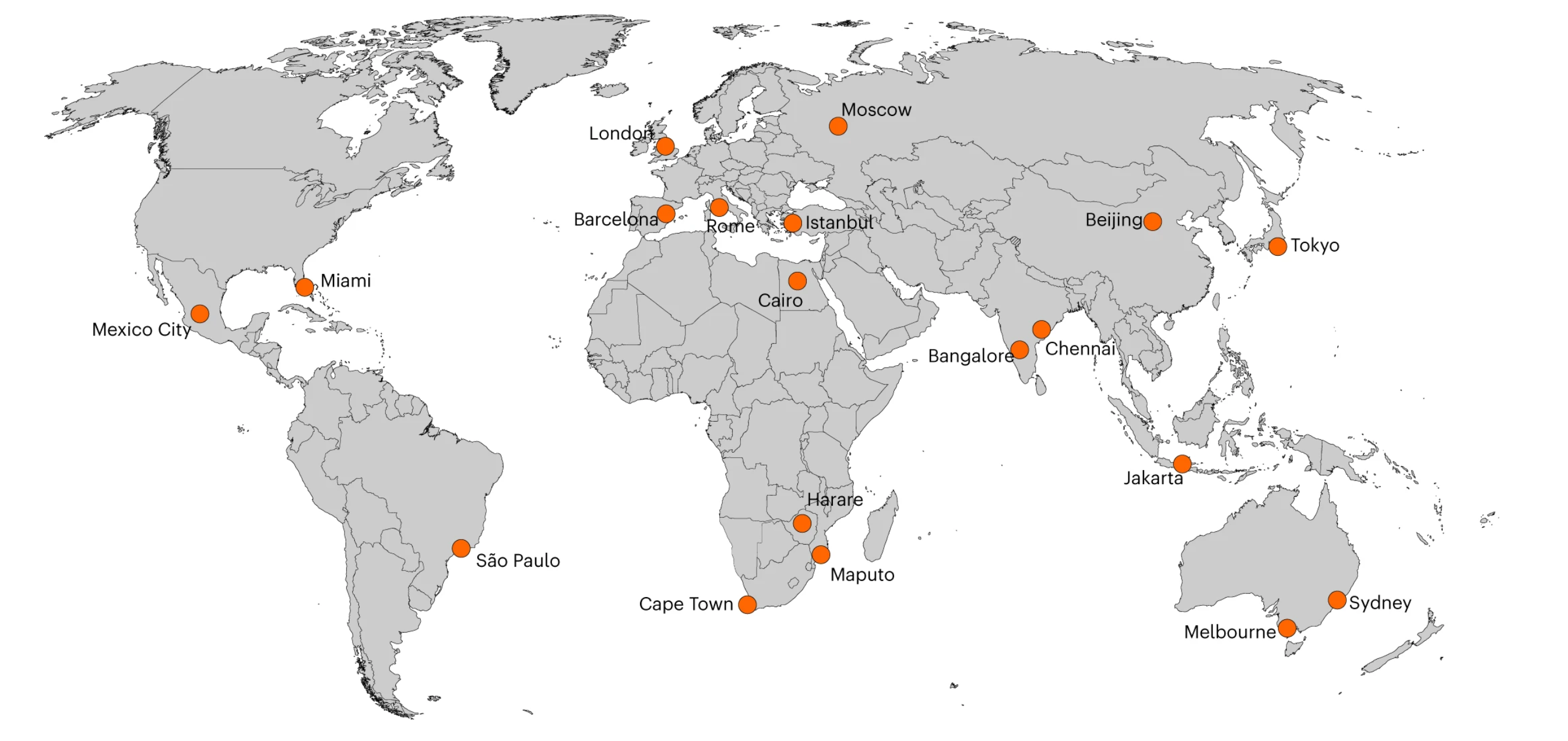‘Lifestyles of the rich’ are driving city water shortages
‘The era of cheap and plentiful drinking water has passed’
Your support helps us to tell the story
From reproductive rights to climate change to Big Tech, The Independent is on the ground when the story is developing. Whether it's investigating the financials of Elon Musk's pro-Trump PAC or producing our latest documentary, 'The A Word', which shines a light on the American women fighting for reproductive rights, we know how important it is to parse out the facts from the messaging.
At such a critical moment in US history, we need reporters on the ground. Your donation allows us to keep sending journalists to speak to both sides of the story.
The Independent is trusted by Americans across the entire political spectrum. And unlike many other quality news outlets, we choose not to lock Americans out of our reporting and analysis with paywalls. We believe quality journalism should be available to everyone, paid for by those who can afford it.
Your support makes all the difference.The lifestyle habits of the rich are the most signficant driver of severe water shortages in cities, according to a new study.
Overconsumption of water to run large homes and gardens, and fill swimming pools, also causes significant harm to the basic needs of poorer, disenfranchised communities, and threatens long-term stability of regions’ supplies overall.
More than 80 cities around the world have suffered severe water shortages in the past 20 years including Miami, London, Mexico City, Rome, Cape Town, Moscow, Chennai, Beijing, Tokyo and Melbourne.
The lack of water is being driven by both overuse among certain groups of people and sectors, and the climate crisis which is increasing global temperatures and disrupting rainfall patterns.
Water shortages in cities are only projected to worsen with more than 1 billion projected to experience them in the coming years - and the most vulnerable people face the greatest risks.
Solving this urgent problem is critical as “the era of cheap and plentiful drinking water has passed”, as a previous study found.

The new study, published on Monday in the journal Nature Sustainability, looked specifically at Cape Town in South Africa.
Cape Town was selected due to its stark inequality and deeply-segregated society, researchers said. Secondly, Cape Town experienced a severe drought from 2015-2017 which caused an unprecedented water crisis known as “Day Zero”.
But the researchers noted that issues impacting Cape Town were reflective of many other cities, and relevant to how they plan for the future.
In Cape Town, 13.7 per cent of people belong to a “privileged” group who live in large houses with gardens and swimming pools and consume unsustainable levels of waters, the study found.
About 40 per cent of the population live in low-income areas, and another 21 per cent live in informal settlements. The latter have no running water or toilets in their homes.
The wealthiest people can consume more than 2,100 litres of water per household each day while the very poorest consume about 178 litres.
So despite only making up a small portion of society, the privileged group accountd for more than half of the city’s water consumption.
Meanwhile, the two-thirds which make up the poorest groups use a little over a quarter.
What’s more, most of the water consumed by the rich is for amenities like pools, gardens and water fixtures, while the poor use most of their water for drinking, washing and cooking.
How these different ends of society experienced 2017’s “Day Zero” drought were also starkly different.
The meteorological drought began in 2015 and by 2017, the dams of the Cape Town Water Supply System had reached an alarming level of 12.3 per cent of usable water, the study said.
The city imposed severe water restrictions to prevent a “Day Zero” where it ran out of water entirely.
But the researchers found that the strategies - including water rationing, hiked tariffs and fines - put the greatest strain on the poorest people with the least resources.

The study found that drought-related restrictions can leave lower-income households without enough water to meet their basic needs while for rich families, it means only restricting “non-basic water uses” such as garden watering, car washing and filling swimming pools.
What’s more, privileged groups have ways to be more resilient to drought. In the short-term, they can afford bottled water, the researchers wrote, and have money to set up rainwater harvesting systems or dig private wells on their property in the long-term.
“By unsustainably using public water, well-to-do Capetonians directly affect the amount of water available in the city’s reservoirs,” the researchers added, meanwhile private wells “could eventually deplete the groundwater sources of the area.”
The team compared different scenarios to figure out the great impacts on water supply: population growth; 2C of climate change; overconsumption of water by the rich; or sustainable water use for everyone.
The most unsustainable scenario is if the wealthiest in society continuing to overconsume, they found.
And while new technology and engineering adaptations are important to reduce cities’ water crises, they won’t be enough without becoming more sustainable.
”[T]he only way to preserve available water resources is by altering privileged lifestyles, limiting water use for amenities and redistributing income and water resources more equally,” the study concluded.
The research was carried out by scientists from different disciplines at the Centre of Natural Hazards and Disaster Science in Uppsala, Sweden; Vrije Universiteit in Amsterdam, Netherlands, and the University of Manchester in the UK.





Join our commenting forum
Join thought-provoking conversations, follow other Independent readers and see their replies
Comments